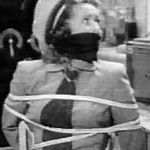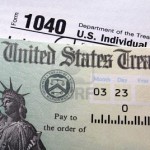 Tied down by liens on your property? If your financial situation has deteriorated to the point where you would consider filing a bankruptcy case, take heart. In some cases, the liens can be eliminated as part of the case. But there are rules and limits to this.
Tied down by liens on your property? If your financial situation has deteriorated to the point where you would consider filing a bankruptcy case, take heart. In some cases, the liens can be eliminated as part of the case. But there are rules and limits to this.
The first method of getting rid of liens is called “avoiding” them by bankruptcy lawyers. Simply put, if the lien has been placed on property that can be declared “exempt” in a bankruptcy case, the lien can be “avoided” or eliminated during the case. This requires an extra motion to the bankruptcy judge, but it is not a tremendous undertaking. The types of liens that can be avoided are “judicial liens” (in other words, those arising out of a collection lawsuit), and “non possessory, non purchase money” liens (examples of which include CashCall advances, HFC personal loans, etc.). These liens can be avoided by consumer debtors in either Chapter 7 or Chapter 13 bankruptcy.
The second method of getting rid of a lien is by stripping it. This can only be done in a Chapter 13 case. Chapter 13 allows debtors to strip liens if they are no longer supported by any valuable equity in the underlying property. The law won’t allow you to strip a first mortgage on a residence, or on a car loan if you bought the vehicle just recently. But what this strategy is really good for is stripping off second mortgages from properties whose value has sunk in the recession. Again, a motion is required to strip a lien — not really a do-it-yourself project.
The third method for dealing with liens is called “cramming them down.” Again, this is a Chapter 13 strategy. If the lien is on property that is partly secured, and partly unsecured, it can be crammed down to the value of the security. So if an old used car is worth $2,000, but has a lien on it with a loan balance of $10,000, the loan balance can be lowered to $2,000 by order of the court. Again, the law does not let you do this on a first mortgage for a principal residence.
If you have any questions on which liens can be removed in a bankruptcy case and which can’t, just give me a call at 978-975-2608 in North Andover, and I’ll go over it with you.
Photo: Noele Niell in the 1950s Superman TV series.
By Doug Beaton

 It’s largely been overshadowed by the news of Whitney Houston’s untimely death, but
It’s largely been overshadowed by the news of Whitney Houston’s untimely death, but 





